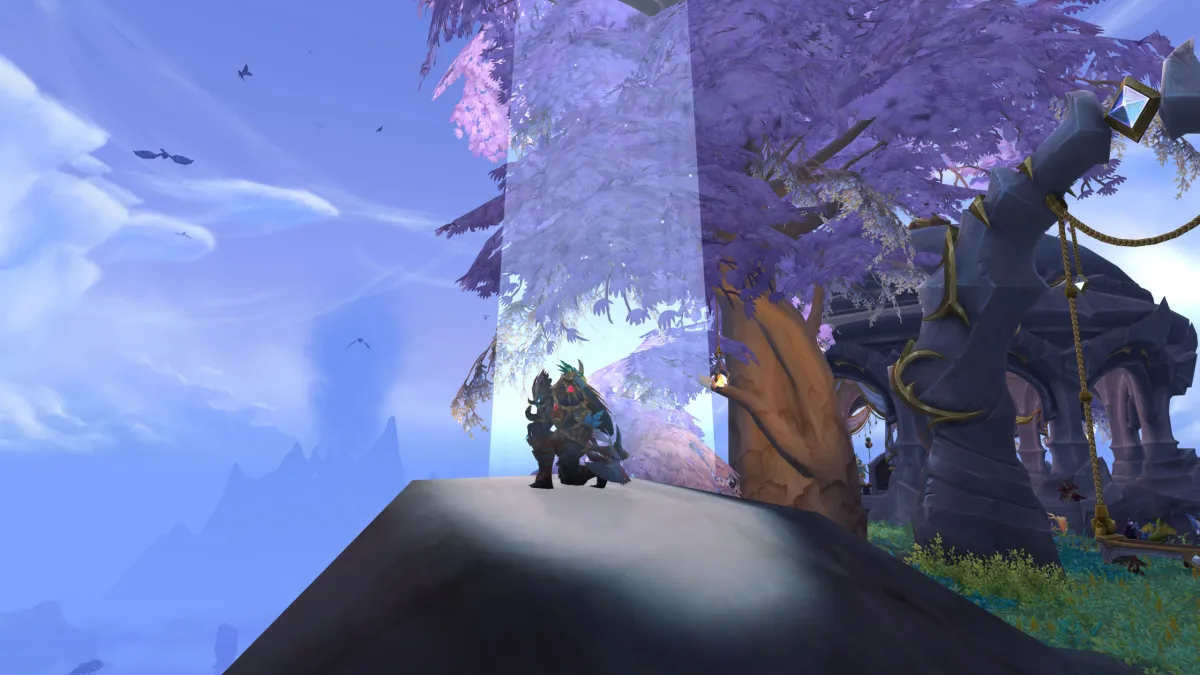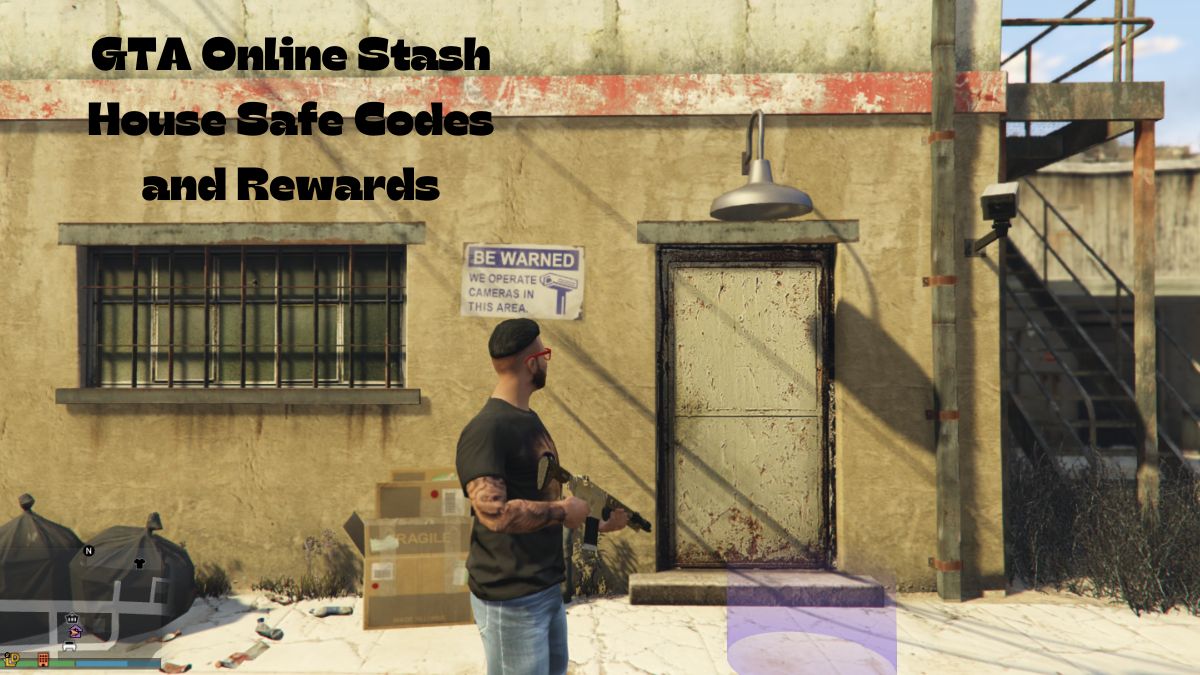Don’t make a bloody mess
Ambitious, brooding, stylish, and messy, Vampire: The Masquerade – Swansong feels right at home with the eternal undead it follows.
It takes the narrative adventure style, mixes it with tabletop RPG and some pen-and-paper puzzle solving, and comes away with something fresh. It just also stumbles a few times on its way there.
The Vampire brand has been slowly upping its presence in video games over the past few years. Alongside the slew of visual novels and a nebulous in-development Bloodlines sequel, Vampire: The Masquerade – Swansong is an interesting new entrant. When it shines, it really feels like the better parts of playing a tabletop campaign. It’s the stutters in-between that cause the most trouble.
Vampire: The Masquerade – Swansong (PC [played], PS4, PS5, Xbox One, Xbox Series X|S)
Developer: Big Bad Wolf
Publisher: Nacon
Released: May 18, 2022
MSRP: $49.99 on PC, $59.99 on console
Vampire: The Masquerade – Swansong follows three different vampires—Galeb, Emem, and Leysha—hailing from three different clans but all falling under the thumb of the Boston Camarilla and its upstart Prince Hazel Iversen. An attempted reunification party meant to consolidate Hazel’s power became a bloodbath, and so she disperses the three protagonists on different quests to ascertain who has attacked them, why, and whether another strike is imminent.
It’s a good kickstart to the plot, and I enjoy the moments where Swansong leans heavily into the lore of Vampire: The Masquerade. There’s a lot of internal politicking and posturing, as internal disputes within the Boston Camarilla spill over. It doesn’t hurt if you don’t know the difference between a Toreador and a Nosferatu, and a Codex is available to handle more esoteric concepts like the Beckoning.
Swansong also hands you some generally straightforward vampires to play. Galeb, the Ventrue, is a dominating presence as one of the older souls still in Boston; the tension between managing his legacy and leaving for distant shores was a highlight for me. Emem Louis is younger, a fast and charismatic Toreador who finds herself caught up in the politics of the court.

Leysha, the Malkavian among the bunch, has the most interesting gameplay mechanics. She can obfuscate her appearance and even change outfits, making some of her sequences feel like the recent Hitman trilogy. She also struggles with visions and premonitions, and possibly hallucinations. Her story can feel a bit fraught at times, though it ultimately hit a solid resolution (with my decisions, at least).
As each one gets wrapped up in the fallout of the party, they have to infiltrate operations and interrogate others to get information. Part of this involves traditional adventure game exploration. Developer Big Bad Wolf’s previous project, The Council, had a similar basis of adventure game exploration and discovery.
Talk it out
Swansong also pulls a similar twist with its confrontations, where major decision points play out as debates between two characters. Throughout each level, the player has to manage two resource meters: their willpower, used to employ reasoning, and their hunger, which grows as they invoke vampiric powers.
These come to a head in confrontations, which pit you against another NPC in a pretty engaging duel of wits and reason. I was often forced to ascertain how certain characters might respond to certain attempts, metering out my willpower left. Do I spend a lot of willpower to employ some Rhetoric, in hopes it wins me this round and gets me closer to the goal? Or do I intentionally fail this point, saving my resources for later?

It seems like a lot the first few times it happens, though ultimately confrontations are simple: make it through the conversation and win the final point, without “missing” too many times and failing. Failure is usually soft anyways, usually cutting off one of several points of progression or incurring a physical change in a character. But it feels good to just barely eke out a battle of the minds.
I just wish the dialogue interactions outside these battles felt a bit more rewarding. Once in a blue moon, I’d get a piece of info that I could use. In a few cases, they opened up a new route forward. Largely, I felt like spending willpower on basic dialogue didn’t reward me enough to keep doing so. Exploration and discovering hard clues, like a letter in someone’s safe or an SD card from a camera, often elicited more tangible rewards.
There’s a lot of exploring to do too, as Vampire: The Masquerade – Swansong‘s puzzles can get in-depth. The best ones heavily lean on the “get out a pad and pen” style; I’ve got a notebook full of scribbled passwords, number sequences, and even a cipher. I’m someone who enjoys that stuff, and in a few cases, they really resulted in some tense sequences. A few of the final puzzles in Swansong really got my heart racing, as I had to make fast deductions and quick logical leaps to avoid terrible outcomes.

A few others are a bit more obtuse, especially in the breadcrumb hints they give. Getting a “completionist” run in your first go will feel a bit arduous, and while I enjoyed the more standard puzzles, some involving navigating the area just felt annoying to poke away at. It felt better organizing my thoughts and solving riddles, rather than trying to ascertain how to use preset jumps to get from point A to point B.
Character models look nice in still images, though once they get moving, they have a bit of an unnatural look in some dialogue scenes. The navigation in general can feel a bit stiff too, and it’s also where I encountered a fair deal of bugs. Sometimes my character would get hitched on a stair wrong, or it would take a deal of time to accurately land my cursor on the marker I was aiming for. Controller suffers the most from this, though the mouse-and-keyboard had some awkward moments too.
Camera angles got misaligned in a few conversations, characters would clip into walls or sit on air. In general, there were a decent number of “oh, that’s weird” moments. It never felt game-breaking, but Swansong is noticeably janky at times. One sequence in particular brought all those issues together though: a stealth mission that really felt out-of-place and genuinely unenjoyable. I breathed a heavy sigh of relief once I knew I was done with it, and have no desire to go back and replay that part in particular.

Vampire: The Masquerade – Swansong does feel like a game that encourages replaying though, if only to see different permutations of the ending. There are definitely a few major branching points, where a character could end up in a very different epilogue or even prematurely meet their Final Death. I don’t know that I’m keen to explore them personally, but a few choices did really tug at my heart, and I found myself caring about the fates of the protagonists a good bit by the time credits rolled.
It’s an un-living
Swansong really feels like it tries to capture the better parts of Vampire: The Masquerade‘s tabletop roots. The segmented structure, level-over-level progression in stats like Education and Technology, and many alternative methods for advancing the story can make it feel like a good, short campaign. I clocked about 20 hours, which felt like just the right length, even as the ending chapters rapidly leapt between the three protagonists as their narrative arcs closed.
When it’s leaning heavily into logic puzzles, mystery, deduction, and sleuthing, Vampire: The Masquerade – Swansong sings. It’s the janky issues, rough exploration puzzles, and a few odd choices that prevent Swansong from being a showstopper.
If you’re heavily interested in a vampire-fueled mystery game with some good “a-ha” moments, Vampire: The Masquerade – Swansong can deliver. It’ll falter and miss some notes here and there, but it does at least sate my thirst for some vampire storytelling for now.
[This review is based on a retail build of the game provided by the publisher.]





